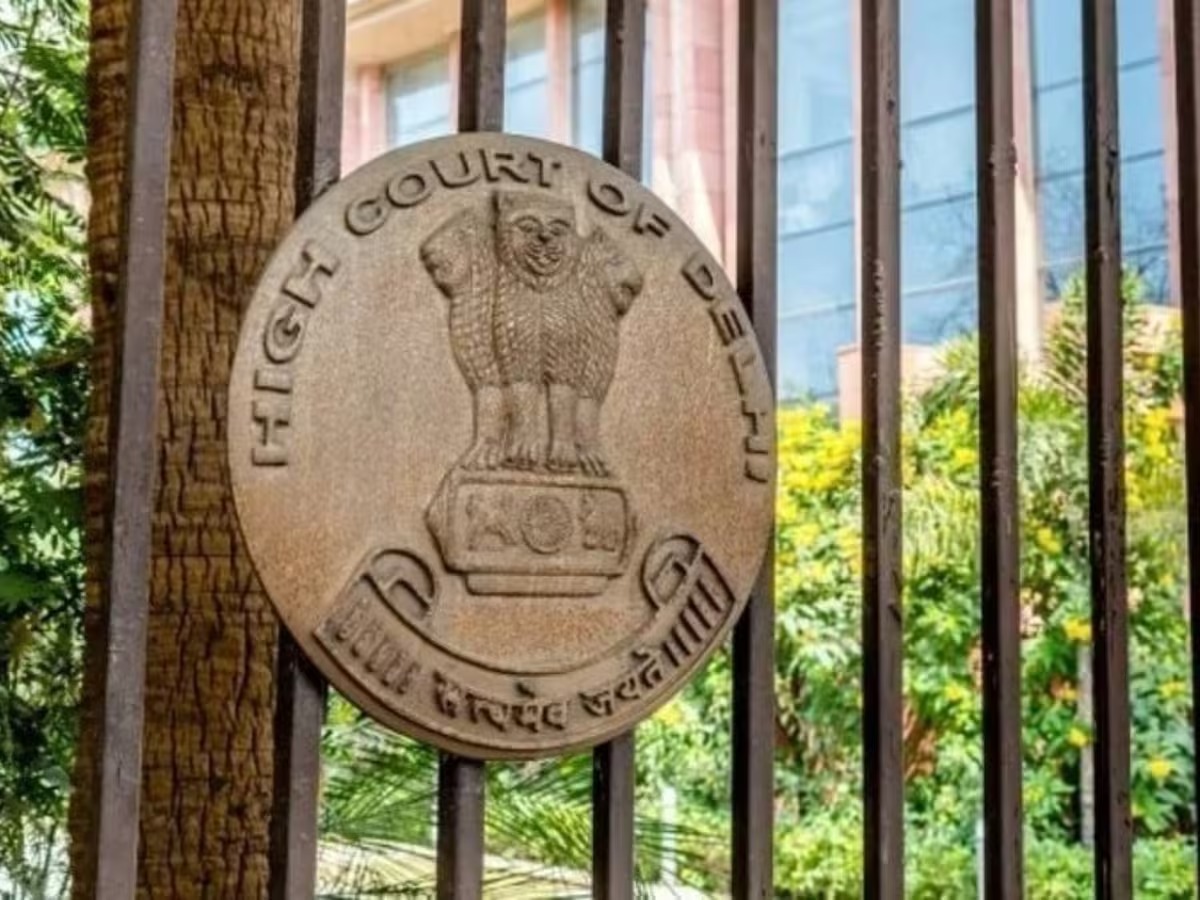@JUDGMENTTAG-ORDER
R.R. Prasad, J.@mdashExtraordinary jurisdiction of this Court has been invoked on behalf of the Petitioner to quash the notice dated 22.7.2009 (Annexure-4), issued by the learned Special Judge (Vigilance), Ranchi in connection with Vigilance P.S. Case No. 9 of 2009, corresponding to Special Case No. 13 of 2009, whereby and whereunder, the Petitioner has been directed to deposit his pass-port within a week of the receipt of the notice.
2. As per the case of the Petitioner, he is a Non-Resident Indian (N.R.1.) having a resident visa of United Arab Emirates and presently is working as Sales Manager in M/s. Chemtech Engineering, Dubai, where his children are pursuing their studies.
3. Further case is that while the Petitioner was on leave, he received a notice, as contained in Memo No. 3054 dated 9.7.2009 (Annexure-2), issued by the Respondent No. 2-Inyestigating Officer-cum-Senior Deputy Superintendent of Police, Vigilance Bureau, Ranchi, of a case instituted under Sections 409, 420, 423, 424, 465 and 120-B of the Indian Penal Code and also under Sections 7, 10, 11 and 13 of the Prevention of Corruption Act against the Ex-Chief Minister and other Ministers for misusing their official position and indulging themselves in corrupt practices and embezzlement of public fund, whereby the Respondent No. 2 in exercise of power as conferred u/s 160 Code of Criminal Procedure directed the Petitioner to appear before him on 13.7.2009, as the Petitioner was considered to be the person well aware of certain facts and circumstances of the said criminal case. Due to unavoidable reasons, the Petitioner could not make himself available, before the Respondent No. 2 on the date fixed but informed all about it and made request through his representative to fix another date so that he may make himself available for investigation. Accordingly, the Petitioner was asked to appear on 15.7.2009 on which date, the Petitioner appeared before the Respondent No. 2 and cooperated fully with the investigation in the manner that whatever informations were sought by the Respondent No. 2, it were given which were within the knowledge of the Petitioner. However, the Petitioner was again asked to appear on 18.7.2009 with certain documents, relating to his income and the bank account. Accordingly, the Petitioner appeared on the date fixed and submitted the document and then he was again asked to produce documents relating to his foreign travel, such as. pass-port. Visa etc. On 24.7.2009, the Petitioner produced the photo copy of those documents, as desired by the Investigating Officer. On the same day in the evening, the Investigating Officer handed over a notice dated 22.7.2009, issued by the Special Judge (Vigilance), Ranchi, whereby the Petitioner had been directed to deposit his pass-port within a week of the receipt of the notice and this gave cause of action to the Petitioner to file an application before this Court challenging the said notice on the ground that the order directing the Petitioner to deposit pass-port is without jurisdiction and is illegal.
4. Mr. Indrajit Sinha, learned Counsel appearing for the Petitioner submits that the Special Judge (Vigilance), Ranchi, by directing the Petitioner to deposit the passport has virtually passed an order which does have effect of its impounding which the Special Judge (Vigilance), Ranchi does not have any power, rather that power only lies with the Pass-Port Authority in terms of Section 10(3) of the Pass-Port Act who even without following the procedure laid down in the Act and without giving opportunity to show-cause cannot pass order of impounding the pass-port.
5. Learned Counsel further submits that if the said order passed by the Special Judge (Vigilance), Ranchi is carried out, Petitioner''s fundamental right to liberty as enshrined under Article 21 of the Constitution of India would be infringed, as he does have right to travel of which right the Petitioner cannot be deprived of except in accordance with the procedure established by law. Thus, the impugned order infringing the fundamental right of the Petitioner is quite illegal and without jurisdiction and hence, it is fit to be set aside.
6. As against this, Mr. A.K. Kashyap, learned Counsel appearing on behalf of the Vigilance, submits that the Court having been satisfied that the production of the pass-port is necessary/desirable for the purpose of investigation of the vigilance case, has passed the impugned order in exercise of power as conferred u/s 91 Code of Criminal Procedure and hence, the order never warrants to be interfered with by this Court.
7. In the context of the submission, advanced on behalf of the parties, one needs to take notice of the provision, as contained in Section 91 (1), Code of Criminal Procedure, which reads as follows:-
Summons to produce document or other thing.-(1) Whenever any Court or any officer in charge of a police station considers that the production of any document or other thing is necessary or desirable for the purposes of any investigation, inquiry, trial or other proceeding under this Code by or before such Court or officer, such Court may issue a summons, or such officer a written order, to the person in whose possession or power such document or thing is believed to be, requiring him to attend and produce it, or to produce it, at the time and place stated in the summons or order.
8. In terms of the said provision, it becomes incumbent upon the learned Magistrate to make himself satisfy as to whether the production of a particular document or book is necessary or desirable for the purpose of investigation, inquiry or trial of any case, before he passes order for production of the said document. It appears to be mandate of the provision that in determining that question he has to exercise his discretion judicially, in the sense that the document or the book sought to be produced has a bearing upon the case or that is altogether irrelevant. But from perusal of the impugned order, it appears that the Court without going into the question as to whether the document sought to be produced is at all, necessary or desirable for the purpose of inquiry/investigation or trial of the case in connection of which the said document was ordered to be produced. That being the situation, the impugned order certainly suffers from illegality and is fit to be set aside.
9. That apart, the issue which is pertinent is that whether the impugned order if carried out does infringe right of personal liberty, as enshrined under Article 21 of the Constitution of India. It be noted that the Petitioner under Annexure-4 has been directed to produce his pass-port. If it is carried out, the production of the document before the Court would amount to impounding as according to the Oxford dictionary, "impounding" means to take legal or to take formal possession. In other words, it would mean to keep in custody in accordance with law, if on production the document is retained for some considerable period of time, then such retention would certainly amount to impounding of the document.
10. The contention, made on behalf of the Vigilance that any order relating to production of a document would never amount to impounding when a Court in exercise of power as conferred u/s 91 of Code of Criminal Procedure passes such order, is not acceptable as the Hon''ble Supreme Court in case of
It may be mentioned that there is difference between seizing of a document and impounding a document, a seizure is made at a particular moment when a person or authority takes into his possession some property which was earlier not in his possession. Thus, seizure is done at a particular moment of time. However, if after seizing of property or document the said property or document is retained for some period of time, then such retention amounts to impounding of the property or document. In Law Lexicon by P. Ramanatha Aiyar (2nd Edn.), the word "impound" has been defined to mean.
"to take possession of a document or the like for being held in custody in accordance with law."
Thus, the word "impounding" really means retention of possession of goods or a document which has been seized.
11. Once the effect of the impugned order would be that of impounding, then as per the said decision, of the Hon''ble Supreme Court, the Court will not have any power to impound the document, rather it is the Pass-Port Authority who, in terms of Section 10(3) of the Pass-Port Act, can pass order with respect to impounding of the pass-port and that too, after following the procedure laid down in the Act after giving'' opportunity to the party to show-cause in the matter. Thus, on this account also, the impugned order suffers from illegality.
12. However, keeping in view the observation made by the Hon''ble Supreme Court, as indicated above, that in the event of retention of the document for some period of time after its seizure amounts to impounding it can safely be held that if it is required only for a very limited period by the investigating agency for the purpose of investigation, enquiry etc. any order relating to the production would not amount to impounding. Thereafter, in the context of the statement made on behalf of the Petitioner that he does not have any objection if the investigating agency retains the pass-port for a week or so for its verification, it would not be improper to direct the Petitioner to produce the pass-port for a very limited period. At this stage, I may note the submission made on behalf of the Vigilance that the Investigating Officer may take some time in making necessary verification and, therefore, order be passed for keeping it in custody of the investigating agency for its investigation for about three months. This submission is not acceptable, as any order allowing the Authority to keep the passport of the Petitioner for such a long period would certainly be unwarranted. as according to the Hon''ble Supreme Court, that would amount to impounding of the pass-port.
13. Under the circumstances, the Petitioner is hereby directed to produce the document before the Court within a week so that the said document on its verification by the Investigating Officer must be returned on the 7th day of its production.
14. With this observation and direction, this writ application stands disposed of.
15. Let this order be communicated through FAX at the cost of the Petitioner.

